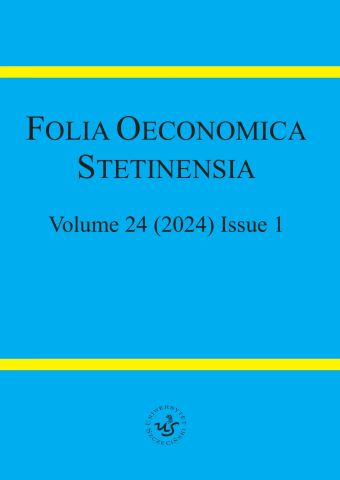Impact of Trade Openness on Government Expenditure
in South Africa: an ARDL Approach
Impact of Trade Openness on Government Expenditure
in South Africa: an ARDL Approach
Author(s): Glenda MalulekeSubject(s): Economy, National Economy, Financial Markets
Published by: Wydawnictwo Naukowe Uniwersytetu Szczecińskiego
Keywords: Government expenditure; Trade openness; Cointegration; ARDL; South Africa
Summary/Abstract: Research background: Numerous studies have been conducted on the relationship between trade openness and government expenditure in several developing countries including African countries, however, the studies are limited in South Africa. Therefore, South Africa does not have adequate empirical studies regarding the impact of trade openness on government expenditure, which could assist in developing their trade policies. Purpose: The study examines the relationship between trade openness and government expenditure in South Africa for the period 1980 to 2021. Research methodology: The study uses the autoregressive distributed lag (ARDL) bounds testing approach to cointegration for estimation of the three Models in the study. Results: The estimation results of all of the three models found that in the short run trade openness has a positive and significant impact on government expenditure in South Africa. The results also suggest that the increase in government expenditure seems to be as a result of trade openness, urbanisation and dependency ratio in the short run while inflation also leads to an increase but only in the long run. Novelty: The study uses three proxies of trade openness which are total trade, ratio of exports, and ratio of imports as a percentage of GDP. To the best of our knowledge, the study may be the first of its kind to empirically examine the impact of trade openness on government expenditure in South Africa using three proxies in a single study.
Journal: Folia Oeconomica Stetinensia
- Issue Year: 24/2024
- Issue No: 1
- Page Range: 144-162
- Page Count: 19
- Language: English

